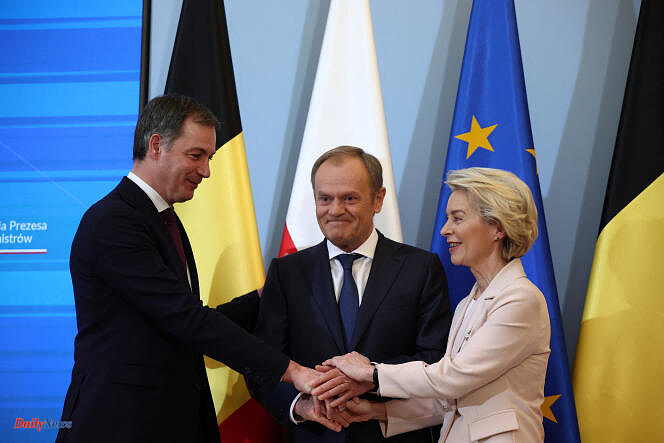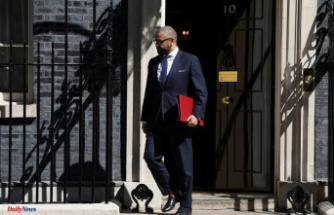The President of the European Commission, Ursula von der Leyen, announced on Friday 23 February in Warsaw the upcoming release of European Union (EU) funds for Poland, in recognition of the efforts of the new (pro-European) government. to realign the country with the principles of the rule of law.
“Two decisions will be taken next week regarding European funds,” said von der Leyen, referring to a sum of up to 137 billion euros from European recovery and cohesion funds, blocked following a long standoff between Brussels and the previous government (populist nationalist).
“Your efforts are important, given the reforms you have launched and the measures you have taken regarding the independence of the courts,” she welcomed during a meeting with the media.
The head of the European executive welcomed the action plan that the Polish government presented this week to member states, “a very strong statement, a clear roadmap for Poland”.
Upgrading the judicial system
The main points of this plan were unveiled on Tuesday by Poland to restore the independence of the judiciary. They concern the statutes of the National Council of the Judiciary, the Supreme Court, the Constitutional Tribunal, the common law courts as well as the separation of the functions of Minister of Justice and Head of the National Prosecutor's Office.
A number of actions and draft laws relating to bringing the judicial system back to democratic standards have already been adopted or launched by Warsaw.
In December 2017, the European Commission activated Article 7 of the Maastricht Treaty against Poland, provided for in the event of threats to the rule of law. This procedure – which has since also been initiated against Hungary – can in theory go as far as a suspension of a state's voting rights in the Council of the EU.












